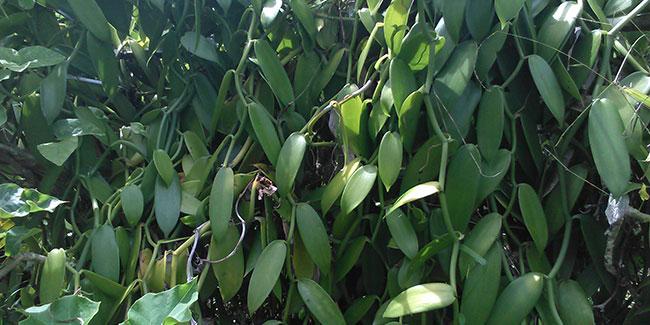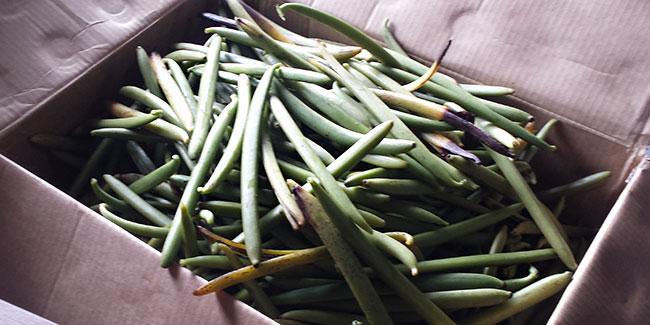
An 18 month long project to support the development of the vanilla industry in Vava'u this year has also helped Tonga's MAFF and Australian development partners to better understand the challenges and opportunities faced by vanilla growers and the vanilla industry.
In a statement today on the successful completion of the Australian DFAT-funded project, Tonga's MAFF said that a total of 108 Vava'u vanilla growers were directly assisted under the project that concluded this month.
A total of 328 vanilla plantations were visited, and inspections were held every three months, under a MAFF monitoring and evaluation system.
The project identified what makes "a good vanilla grower", and confirmed a need to include new plantings of vanilla, particularly plantings by small holders and in family plantations to secure the future of the industry. It also observed the effects of climate change on the crops.
The Project was funded by the Australian Government under the Department of Foreign Affairs and Trade’s Governance, Economic and Private Sector Development programme.
Vava’u vanilla growers were directly assisted through infrastructure development support and training. A monitoring and evaluation system and provision of renovated curing facility and associated tools and equipment was available for all Vava’u vanilla growers. The project was managed and implemented by Fairtrade ANZ in collaboration with the Ministry of Agriculture, Food and Forests (MAFF), Vava’u Branch.
MAFF stated that important accomplishments included:
- Infrastructure development support to selected vanilla growers through cash to assist the growers on vanilla maintenance and pollination.
- Vanilla growers were provided with training sessions on plantation management, vanilla harvesting and curing, and Fairtrade standards in partnership with Fairtrade ANZ.
- Provision of additional curing facility through the renovation of the MAFF curing facility and associated tools and equipment required.
- A quarterly monitoring and evaluation system was established at MAFF.
- The Project was reviewed, with documentation of lessons learned.

The lessons learned, included some key points:
- Key performance indicators for “good vanilla grower” to include performance by measuring yield per plant and following of key activities outlined in the quarterly monitoring and evaluation system established for the project.
- Future development of the vanilla industry to include new planting instead of focusing on existing vanilla plantations only. Many of the old and existing vanilla plantations have very limited potential to increase their production capacity due to their old age whereas the future will depend very much on new plantations. These new plantations, if given the proper care and maintenance, will provide more benefits in the longer term.
- Continue the close collaboration between MAFF and Vanilla Growers Association, Vava’u (VGA), particularly on monitoring and evaluation of all the vanilla plantations in Vava’u. Good synergy was established during the project duration between VGA and MAFF and these needs to be continued to sustain and keep up the momentum in vanilla plantation development in Vava’u. This is also in line with MAFF’s strategic outcome objective of dynamic public and private partnership (Tonga Strategic Development Framework II, Outcome Objective 2).
- For new vanilla growers – to encourage smaller plantation establishment approximately 500 vanilla plants or less being more appropriate according to the availability of labor force and resources of the family instead of establishing large plantations without capacity to care and maintain the plantations.
- Observed the climate change and its effects on flowering season, frequency of flowering per season and potential adaptation measures through diversification of crops in the vanilla plantations.
- The biggest lesson learned by MAFF was the monitoring and evaluation system being established and the actual inspections of all the plantations (total of 328 vanilla plantations in Vava’u) every quarter made MAFF understand better the challenges and opportunities faced by the Vanilla Growers and the Vanilla industry as a whole.
"MAFF would like to take this opportunity to thank the Australian Government and the Australian people for the funding provided for the project. This is also to acknowledge the partnership with Fairtrade ANZ in the implementation of the project. MAFF Partnership with the Vanilla Growers Association, Vava’u is also acknowledged," MAFF stated.






